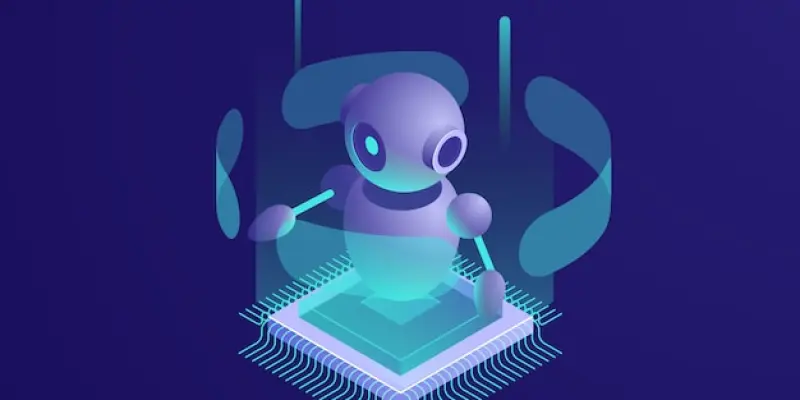Artificial intelligence is emerging as a billion-dollar industry, transforming sectors like healthcare, finance, and engineering as it restructures human roles and expectations. In engineering, AI is not merely replacing traditional methods but revolutionizing the way work is performed. Engineers face the challenge of integrating AI tools into everyday practice, creating a partnership between human intelligence and machine efficiency. AI technologies like neural networks and machine learning models deliver impressive computational power, aiding in error detection, product development, and the testing of design prototypes. Yet, despite the prowess of AI, engineers retain a critical edge through human creativity, ethical judgment, and empathetic problem-solving—a synergy that is pivotal for future breakthroughs and seamless integration in the engineering sector.
The Collaborative Evolution of Engineering Roles
Embracing AI Tools to Augment Human Creativity
The engineering landscape is evolving into a collaborative ecosystem where AI automates repetitive tasks, freeing engineers to concentrate on innovative solutions that demand human ingenuity. AI, while proficient in analyzing patterns and performing calculations, lacks the creative finesse inherent in human engineers. As AI technologies proliferate, engineers must hone skills in creative problem-solving and critical thinking, ensuring that insights gleaned from AI are harnessed effectively. This collaboration fosters an environment where engineers can leverage AI to enhance their capability, allowing more focus on radical innovation and development.
Moreover, engineers play a significant role in guiding AI’s application, ensuring ethical principles are upheld, especially in sensitive fields such as healthcare and aerospace. Ethical judgment and human experience are unequivocally irreplaceable, providing a safety net for AI-led operations and developments. As architects of AI systems, engineers are responsible for the sustainable and ethical deployment of AI, embedding a moral compass into technology that profoundly affects lives and global ecosystems.
Training, Maintaining, and Innovating AI Systems
In this transformative era, engineers act as core architects, trainers, and maintainers of AI-driven systems, a role demanding specialized expertise and dedication. AI may handle complex computations, but its effective operation requires the oversight of skilled engineers who ensure systems run efficiently, adapt to new environments, and remain aligned with ethical practices. Engineers are tasked with developing algorithms that are secure and transparent, addressing concerns of privacy and data security—critical components in a technological landscape increasingly reliant on AI.
Moreover, engineers foster innovation by developing new AI applications and systems that transcend the limitations of current models, pushing boundaries in fields like robotics and machine learning. This innovation paves the way for advancing AI capabilities in diagnostics, forecasting, and precision automation. The continuity and evolution of AI usability rely on engineers to perpetuate advancements, explore new methodologies, and integrate AI seamlessly into global industries.
The Future of Engineering in an AI-Dominated Era
New Job Opportunities and Integrations
The advent of AI in engineering has spawned new career paths and opportunities, reshaping traditional job paradigms. Roles such as AI Systems Engineer, Machine Learning Engineer, Robotics Designer, and Ethical AI Specialist are emerging, highlighting the expanding interface between humans and machines. Engineers are instrumental in developing, managing, and optimizing AI tools, becoming essential contributors in multidimensional tech landscapes. These roles facilitate engineers in harnessing AI for enhanced productivity and innovative feats.
Additionally, the integration of AI challenges engineers to adapt swiftly to changing dynamics, developing new skills to remain relevant and thrive. As certain functions within the engineering sector become automated, new opportunities arise for engineers to focus on strategy, design, and innovation—areas fundamentally supported by AI systems processing vast datasets and analytics. Engineers are urged to approach AI as a beneficial collaborator, utilizing its computational power to drive progress and achieve groundbreaking achievements.
The Ethical Considerations and Sustainable Practices
The engineering sector is transforming into a synergistic space where AI takes over routine tasks, enabling engineers to focus on inventive solutions that require human creativity. AI excels in pattern analysis and calculating but lacks the creative touch that human engineers possess. With AI tech becoming more widespread, engineers must refine their skills in creative problem-solving and critical thinking to effectively utilize insights from AI, fostering a setting where AI enhances their capabilities and allows them to concentrate on groundbreaking innovation and development.
Additionally, engineers are integral in directing AI’s use, ensuring adherence to ethical standards, crucial in sensitive areas like healthcare and aerospace. Human experience and ethical judgment provide essential safeguards for AI-driven projects and advancements. Charged with designing AI systems, engineers ensure AI’s responsible and ethical implementation, embedding a moral guide within technology that significantly impacts lives and global environments.

